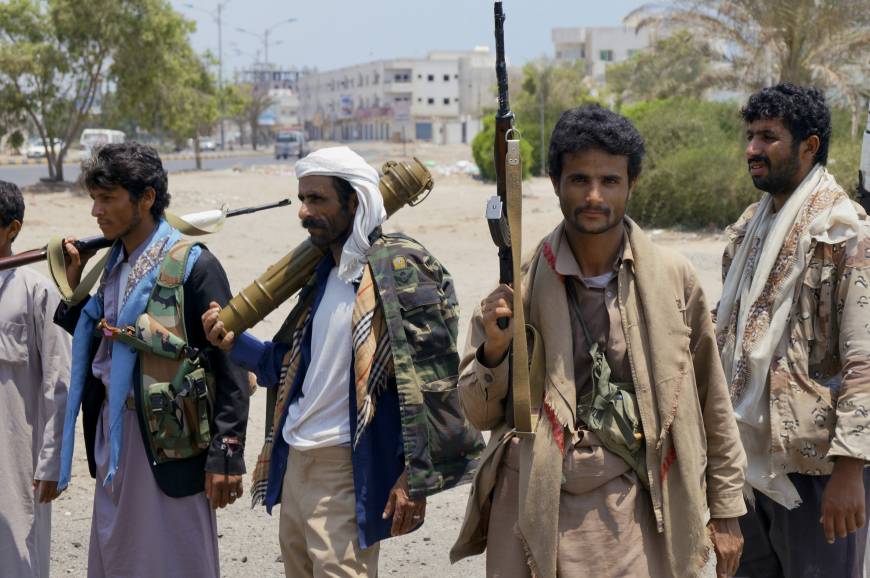Riyadh – Qatar’s support of Yemen’s Houthi rebels has “revealed the truth of the ties that have existed for some time now between the two sides,” analysts told Asharq Al-Awsat.
They said that Qatar’s negative approach, not only harms the Gulf Cooperation Council and its national security, but it is tantamount to “military and security suicide after it already committed suicide on the political and media levels.”
The analysts noted that Doha played a negative and harmful role through its support of the Houthis with the coordination of Iran. It then persuaded the military branch of the Muslim Brotherhood to ally itself with the Houthis in order to target Saudi Arabia.
President of the Washington DC-based Saudi American Public Relation Affairs Committee (SAPRAC), Salman al-Ansari, stated that trusted intelligence information revealed that Qatar joined operation Decisive Storm in order to provide Houthis with the coordinates of the Saudi-led Arab Coalition. This consequently led to several martyrs from among the Saudi and Emirati ranks of the alliance in Yemen.
Doha also sought to join the alliance to serve the Yemeni Gathering for Reform, which is affiliated with the terrorist Muslim Brotherhood, added al-Ansari.
Qatar’s recognition of the legitimacy of the Houthis and possible opening of an office for them in Doha “will be military and security suicide,” he added.
“This development will turn Qatar into a country that goes against international consensus and a clear violator of United Nations Security Council resolutions 2216, 2201, 2342 and 2140, which all prohibit providing support to the rebels in Yemen,” he continued.
Saudi political analyst Dr. Khalid Batrafi said: “Qatar’s ties with the Houthis exist and they are strong. It is better that they are out in the open than being under the table, because you can better follow and confront actions that are done in the open.”
Yemeni political analyst Dr. Najib Ghallab stated: “Had it not been for Qatar’s backing of the Houthis, the extremist group would have been destroyed a long time ago.”
“Qatar sough to support the Houthis just when they were on the brink of dying. The Arab Coalition could have destroyed them had Qatar not interfered through an agreement with Iran,” he explained.
“This intervention saved the Houthi movement,” he stressed.
It even struck an agreement that saw Houthi prisoners freed from jail. Each former detainee was given a rifle and 10,000 Qatari riyals. These individuals stormed Sana’a in 2014 and they are the actual leaders of the coup, Ghallab remarked.
Furthermore, he noted that several Yemenis rejected Qatar’s mediation, “but strangely enough, it managed to convince the Muslim Brotherhood’s military and political wings that were combating the Houthis that reconciliation with it was important because a conspiracy is being spun around them.”
“I believe that Qatar had its own clear agenda of targeting Saudi Arabia through this reconciliation and its ongoing support for the Houthis is linked to Iran’s revolutionary goals,” he added.
